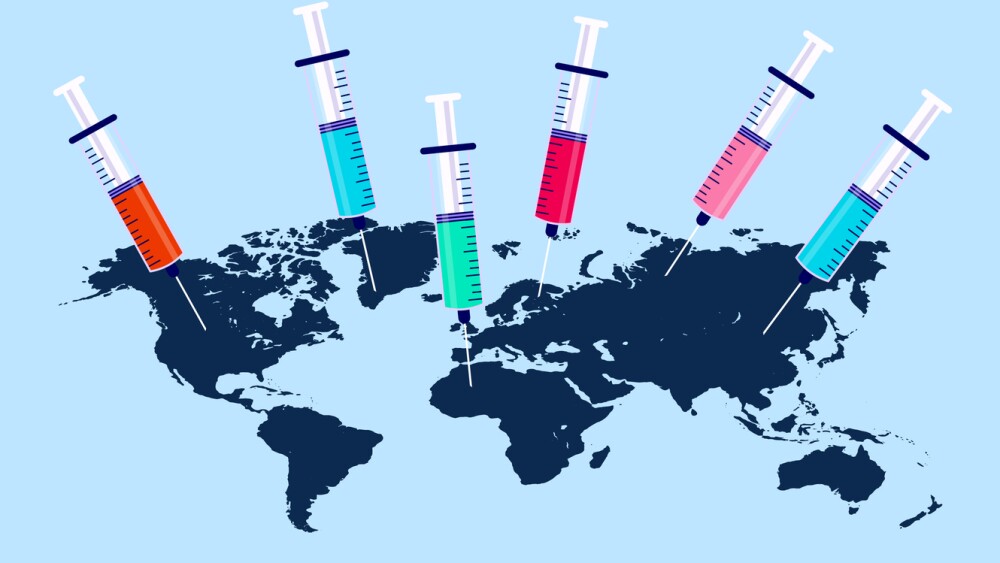PHILADELPHIA, Oct. 22 /PRNewswire-FirstCall/ -- Shire plc , the market leader in Attention Deficit Hyperactivity Disorder (ADHD), announced today that it will present key scientific data on its ADHD treatments at a major scientific and educational meeting of child and adolescent psychiatrists to be held October 23-28 in Boston.
"The Shire studies to be presented are indicative of our continuous efforts to provide a diverse range of innovative ADHD treatments," said Eliseo Salinas, M.D., Chief Scientific Officer for Shire. "We are proud to be sharing our new scientific data with the medical community, which include results of the first VYVANSE(TM) study in adults with ADHD and findings from a 12-month study on DAYTRANA(TM), the first and only patch for ADHD approved by the U.S. Food and Drug Administration."
A summary of the key scientific presentations is provided below. Information about the data presentations mentioned in this release is embargoed until the respective presentation sessions have taken place at the meeting.
About ADHD
Approximately 7.8 percent of all school-age children, or about 4.4 million U.S. children aged 4 to 17 years, have been diagnosed with ADHD at some point in their lives, according to the CDC. ADHD is one of the most common psychiatric disorders in children and adolescents. The disorder is also estimated to affect approximately 9.2 million adults across the U.S. based on a retrospective survey of adults aged 18 to 44, projected to the full U.S. adult population. ADHD is a neurobiological psychiatric disorder that manifests as a persistent pattern of inattention and/or hyperactivity- impulsivity that is more frequent and severe than is typically observed in individuals at a comparable level of development. To be properly diagnosed with ADHD, a child needs to demonstrate at least six of nine symptoms of inattention; and/or at least six of nine symptoms of hyperactivity/impulsivity; the onset of which appears before age 7 years; that some impairment from the symptoms is present in two or more settings (e.g., at school and home); that the symptoms continue for at least six months; and that there is clinically significant impairment in social, academic or occupational functioning and the symptoms cannot be better explained by another psychiatric disorder.
Although there is no "cure" for ADHD, there are accepted treatments that specifically target its symptoms. The most common standard treatments include educational approaches, psychological or behavioral modification, and medication.
About VYVANSE
Tell the doctor about any heart conditions, including structural abnormalities, that you, your child, or a family member, may have. Inform the doctor immediately if your child develops symptoms that suggest heart problems, such as chest pain or fainting.
VYVANSE should not be taken if your child has advanced disease of the blood vessels (arteriosclerosis); symptomatic heart disease; moderate to severe high blood pressure; overactive thyroid gland (hyperthyroidism); known allergy or unusual reactions to drugs called sympathomimetic amines (for example, pseudoephedrine); seizures; glaucoma; a history of problems with alcohol or drugs; agitated states; taken a monoamine oxidase inhibitor (MAOI) within the last 14 days.
Tell the doctor before taking VYVANSE if your child is being treated for or has symptoms of depression (sadness, worthlessness, or hopelessness) or bipolar disorder; has abnormal thought or visions, hears abnormal sounds, or has been diagnosed with psychosis; has had seizures or abnormal EEGs; has or has had high blood pressure; exhibits aggressive behavior or hostility. Tell the doctor immediately if your child develops any of these conditions or symptoms while taking VYVANSE.
Abuse of amphetamines may lead to dependence. Misuse of amphetamine may cause sudden death and serious cardiovascular adverse events. These events have also been reported rarely with amphetamine use.
VYVANSE was generally well tolerated in clinical studies. The most common side effects reported in studies of VYVANSE were decreased appetite, difficulty falling asleep, stomachache, and irritability.
Aggression, new abnormal thoughts/behaviors, mania, growth suppression, worsening of motion or verbal tics, and Tourette's syndrome have been associated with use of drugs of this type. Tell the doctor if your child has blurred vision while taking VYVANSE.
For Full Prescribing Information go to www.vyvanse.com.
About DAYTRANA
Tell your doctor about any heart conditions, including structural abnormalities, your child or a family member may have. Inform your doctor immediately if the child develops symptoms that suggest heart problems, such as chest pain or fainting.
DAYTRANA should not be used if the child has: significant anxiety, tension, or agitation; allergies to methylphenidate or other ingredients of DAYTRANA; glaucoma; discontinued in the last 14 days or is taking a monoamine oxidase inhibitor (MAOI); tics, or family history or diagnosis of Tourette's syndrome.
Tell your doctor before using DAYTRANA if the child: is being treated for or has symptoms of depression (e.g. sadness, worthlessness, or hopelessness) or bipolar disorder; has family history of tics; has abnormal thoughts or visions, hears abnormal sounds, or has been diagnosed with psychosis; has had seizures or abnormal EEGs; has or has had high blood pressure; exhibits aggressive behavior or hostility. Tell your doctor immediately if the child develops any of these conditions/symptoms while using Daytrana.
In clinical studies, side effects were generally mild to moderate. The most common side effects reported with DAYTRANA were decreased appetite, sleeplessness, sadness/crying, twitching, weight loss, nausea, vomiting, tics, and affect lability (mood swings). Aggression, new abnormal thoughts/behaviors, mania, and growth suppression have been associated with use of drugs of this type. Tell your doctor if the child has blurred vision while using DAYTRANA.
Abuse of DAYTRANA can lead to dependence.
DAYTRANA should be applied daily to clean, dry skin, which is free of any cuts or irritation. Skin irritation or allergic skin rash may occur.
For Full Prescribing Information go to www.DAYTRANA.com.
SHIRE PLC
Shire's strategic goal is to become the leading specialty biopharmaceutical company that focuses on meeting the needs of the specialist physician. Shire focuses its business on attention deficit and hyperactivity disorder (ADHD), human genetic therapies (HGT), gastrointestinal (GI) and renal diseases. The structure is sufficiently flexible to allow Shire to target new therapeutic areas to the extent opportunities arise through acquisitions. Shire's in-licensing, merger and acquisition efforts are focused on products in niche markets with strong intellectual property protection either in the US or Europe. Shire believes that a carefully selected portfolio of products with strategically aligned and relatively small-scale sales forces will deliver strong results.
For further information on Shire, please visit the Company's website: www.shire.com.
"SAFE HARBOR" STATEMENT UNDER THE PRIVATE SECURITIES LITIGATION REFORM ACT OF 1995
Statements included herein that are not historical facts are forward- looking statements. Such forward-looking statements involve a number of risks and uncertainties and are subject to change at any time. In the event such risks or uncertainties materialize, Shire's results could be materially affected. The risks and uncertainties include, but are not limited to, risks associated with: the inherent uncertainty of pharmaceutical research, product development, manufacturing and commercialization; the impact of competitive products, including, but not limited to the impact of those on Shire's Attention Deficit and Hyperactivity Disorder (ADHD) franchise; patents, including but not limited to, legal challenges relating to Shire's ADHD franchise; government regulation and approval, including but not limited to the expected product approval date of SPD503 (guanfacine extended release) (ADHD); Shire's ability to secure new products for commercialization and/or development; Shire's ability to benefit from its acquisition of New River Pharmaceuticals Inc.; the successful development of JUVISTA and other risks and uncertainties detailed from time to time in Shire plc's filings with the Securities and Exchange Commission, particularly Shire plc's Annual Report on Form 10-K for the year ended December 31, 2006.
Vyvanse(TM) is a trademark of Shire LLC.
Daytrana(TM) is a trademark of Shire Pharmaceuticals Ireland Limited.
CONTACT: Jacelyn Seng, +1-212-601-8385, +1-917-392-0756, or Jennifer
Anello, +1-212-601-8132, +1-203-470-0836, both Porter Novelli for Shire
Web site: http://www.shire.com/
http://www.vyvanse.com/
http://www.DAYTRANA.com/




